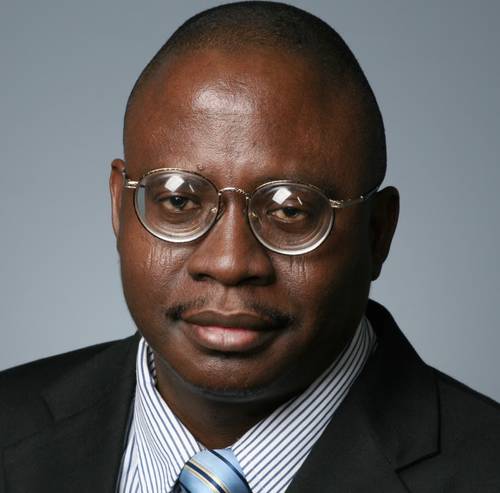Life And People
Obasanjo, Colombia And Boko Haram -By Akeem Soboyede


Akeem Soboyede
Who knew it could come to this?
Boko Haram burst onto our national consciousness in 2009, in a sudden explosion of murder and mayhem across many states. Six years later Nigeria’s home-grown terrorist group has become such a transborder threat that it menaces many other sovereign states. Nothing more illustrates this sad reality than the news a few days ago that hundreds of US troops have been deployed in Cameroon to assist that country confront the problems the group now poses to its security. No country welcomes foreign troops onto its soil except it deems their presence absolutely necessary.
The sense of urgency precipitated by Boko Haram’s murderous activities, not only in Nigeria but in neighbouring countries, certainly explains the visit former president Olusegun Obasanjo recently paid to the incumbent, Muhammadu Buhari, at the head of a team of Colombian security experts. The visit was said to be under the auspices of the Copenhagen Foundation, a think-tank Obasanjo leads.
The name “Pablo Escobar” and a decades-long struggle with drug trafficking cartels usually comes into the minds of most people when they hear about the Central American country. But its 44 million people have also been burdened by an insurgency that has lingered for more than five decades. The organization long identified with that security crisis is the Revolutionary Armed Forces of Colombia, better known by its Spanish-language acronym, FARC. The group and its progeny of other less well-known militias operating in that country are steeped in a motley of origins. The most significant of these is that Colombia and other countries like it in the region were battlegrounds of the Cold War between the United States and the defunct Soviet Union, which raged for decades after the end of the Second World War in 1945.
Unfortunately, like North Korea, Colombia’s FARC survived the collapse of the Soviet behemoth and the East-bloc of communist countries. Though stripped of the patronage it previously enjoyed from the Soviets, FARC did not flounder. It continued to carry out killings across Colombia, along with other acts of violence including kidnappings for ransom. Like most revolutionary groups in Latin America, FARC has justified its existence on the premise that it fights for the country’s poor. The group argues that only its struggle and the expected triumph of the revolution could free the poor masses of the country from the alleged clutches of Colombia’s greedy “bourgeoisie” class. There are, of course, the grim statistics: Colombia’s insurgency has taken a great toll in human lives and infrastructure destroyed. About 220,000 lives have been lost between 1958 and 2013, with most of the dead – about 177,307 – being civilians.
What is quite surprising against this historical and empirical backdrop is that former president Olusegun Obasanjo, in his wisdom, somehow believes the Colombian conflict mirrors the murderous Boko Haram campaign in Nigeria, such that it should serve as a template for tackling the insurgency that has buffeted Africa’s most populous country.
A few pertinent facts at this point: first, former president Olusegun Obasanjo is a patriotic Nigerian, and that is no tongue-in-cheek statement. Given his noted and fervent commitment to the principle of indivisibility of the Nigerian state it must indeed be painful for Obasanjo to watch how the Boko Haram miscreants have laid waste to vast swathes of Nigeria these past few years, and murdered its citizens. The former president has also not simply watched events from afar. A few years ago he put himself directly in the line of fire when he contacted a few persons known to be close to the group in an attempt to broker a truce and, ultimately, peace. One of those Obasanjo visited during the mediation attempt that took him to the northeast, Babakura Fuggu, was assassinated a few days after their meeting, by militants believed to be members of Boko Haram.
Without any doubt the former president’s resolve and genuine commitment to rid Nigeria of the Boko Haram problem is obvious and should brook no doubts or second-guessing.
Nevertheless the Colombian example in combating insurgency that Obasanjo recently urged upon Nigeria’s incumbent president is not one that should readily be embraced. As Obasanjo himself put it the Colombian insurgency led by FARC has lasted for more than five decades. How does that duration have a correlation with the expectation in Nigeria’s situation, where Boko Haram came into most Nigerians’ consciousness only in 2009 and government is intent on keeping faith with its December deadline for defeating the group? What lessons does an insurgency that has raged for 50 years have for a government now pulling all the stops to ensure its local brand of the insurgency curse is annihilated in far less than that time?
There is also the issue of approaches and tactics in combating Boko Haram. Obasanjo is known to have said the group has certain legitimate grievances; he reiterated this position as this past March, at a global education conference held in Dubai, the United Arab Emirates (UAE). “Legitimate grievances” on one side, of course, implies the imperative of accommodation, of the other side coming to terms with such “grievances”. And accommodations also often connote taking the route of a negotiated settlement. Obasanjo does not stand alone in this regard, of course. Even the Buhari government has been known to say it is open to a negotiated settlement










